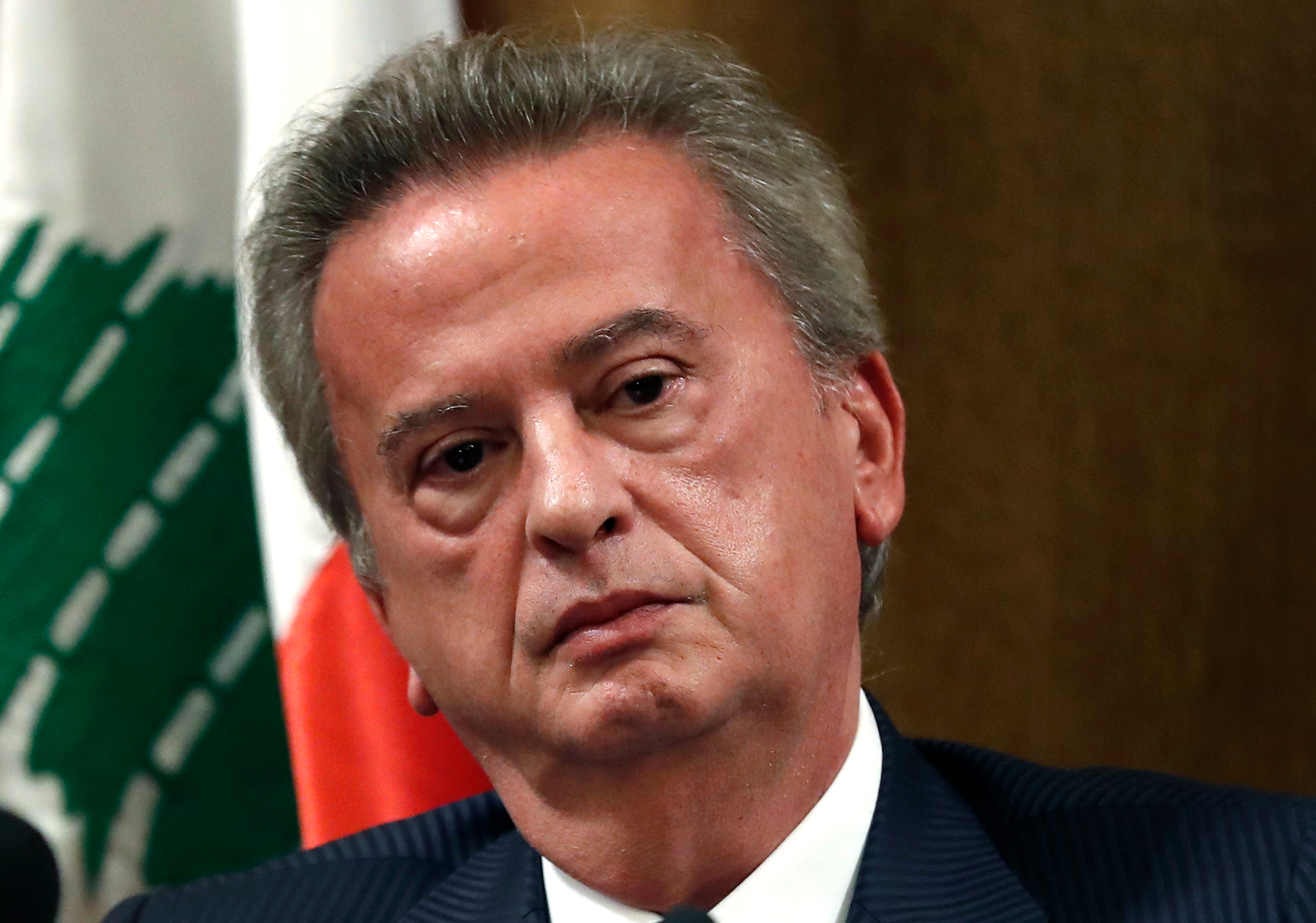France opens graft probe into Lebanon's central bank chief
The French national financial prosecutor’s office has opened a preliminary investigation into the actions of Lebanon’s central bank governor involving potential money laundering

Your support helps us to tell the story
From reproductive rights to climate change to Big Tech, The Independent is on the ground when the story is developing. Whether it's investigating the financials of Elon Musk's pro-Trump PAC or producing our latest documentary, 'The A Word', which shines a light on the American women fighting for reproductive rights, we know how important it is to parse out the facts from the messaging.
At such a critical moment in US history, we need reporters on the ground. Your donation allows us to keep sending journalists to speak to both sides of the story.
The Independent is trusted by Americans across the entire political spectrum. And unlike many other quality news outlets, we choose not to lock Americans out of our reporting and analysis with paywalls. We believe quality journalism should be available to everyone, paid for by those who can afford it.
Your support makes all the difference.The French national financial prosecutor’s office has opened a preliminary investigation into the actions of Lebanon’s central bank governor involving potential money laundering, the prosecutor’s office said Monday.
The French move came months after Switzerland started a probe into possible money laundering and embezzlement at Lebanon’s central bank, which is now at the center of an unprecedented financial crisis roiling the small Mediterranean country.
The French prosecutor’s office said the investigation around Riad Salameh was opened in late May involving potential charges of money laundering and association with an organized criminal group. It gave no further details.
Salameh, 70, who has run Lebanon’s central bank for nearly three decades was for many years seen as the symbol of monetary stability in the tiny country. But Lebanon was in 2019 plunged into its worst economic and financial crisis. The Lebanese pound, pegged for more than 20 years to the dollar at 1,515, is now trading at nearly 13,000 on the black market.
Anti-government protesters now refer to Salameh — a former investment banker with Merrill Lynch — as a “thief” and protests have been repeatedly held outside his office in Beirut amid the crash of the local currency and contraction in the economy that crossed 20% in 2020, according to the World Bank.
In January, Switzerland’s attorney general said he has asked Lebanon for cooperation into the probe of the central bank, without offering further details. It’s also not clear what prompted the Swiss investigation.
Local media reported over the past months that Salameh and his brother as well as one of his aides have been involved in illegal businesses, including money transfers abroad despite the capital controls imposed at home. Salameh had denied making such transfers.
Salameh, who has held the central bank post since 1993, has defended his role, alleging a systematic campaign meant to hold him responsible for the country’s financial crisis.